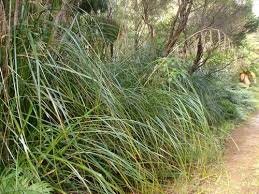Pink Beach Chapter 4
As all the family were in a great hurryhurry to see Pink Beach, the very next day they packedpacked their lunch and bathebathing suits and left home very early in the morningmorning to find it. They left the boat anchoredanchored near the fish factory and walkedwalked over the hills to the clay road, then to the end of the road, and there was the lagoon.
"Why isWhy's it calledcalled a lagoon?" Ricki asked his father.
"A lagoon is a small part of the sea cut off from the sea itselfitself by a hill or a long stretch of sand," Mr Gale explained,explained, with a smile.
They paddledpaddled easyeasily across,across, carryingcarrying their shoes and socks, and reachedreached the bush-coveredcovered hill on the far side. There, the hard work began. As far as they could see, the hill was coveredcovered with very thick bush. There was no path, and the trees were growinggrowing so close together that it was often hard to find a space wide enough to slip through. When they came to a clearerclearer part, there were clumps of a kind of cuttycutty grass that cut their legs, and strong creepersers that trippedtripped them and caught their head and arms. Prickly bush-lawyerlawyer plants scratchedscratched them, and they fell over big rottingrotting logs and stumbledstumbled intointo deep muddymuddy holes full of leaves.
wide enough to slip through. When they came to a clearerclearer part, there were clumps of a kind of cuttycutty grass that cut their legs, and strong creepersers that trippedtripped them and caught their head and arms. Prickly bush-lawyerlawyer plants scratchedscratched them, and they fell over big rottingrotting logs and stumbledstumbled intointo deep muddymuddy holes full of leaves.
|
Comprehension Summarise what has happened so far in this narrative. Clarify these words: bathing suits, explained, paddled, clumps, cutty grass, creepers, prickly, bush-lawyer, scratched, rotting, stumbled. Retell what has happened in this chapter. Was your prediction correct? Make inferences about:
What do you predict might happen next? What question could you ask about this part of the narrative? Visualise these uses of descriptive language: a small part of the sea cut off from the sea itself by a long stretch of sand; paddled easily; trees growing close together; cutty grass; prickly bush-lawyer plants, rotting logs, stumbled into deep muddy holes full of leaves. Make a connection with this chapter of the narrative. |
Word Study Verb endings: What happens when we add s, ed and ing to: paddle, trip, rot, stumble. Other affixes: What happens when we add prefixes and suffixes like ly, er, y to these words: easy, clear, creep, cut, mud. Why is there a t in stretch, scratch? Can you think of other words that end in -le like stumble? What two words make up these compound words: itself, across. What two words are contracted here: Why's.
|